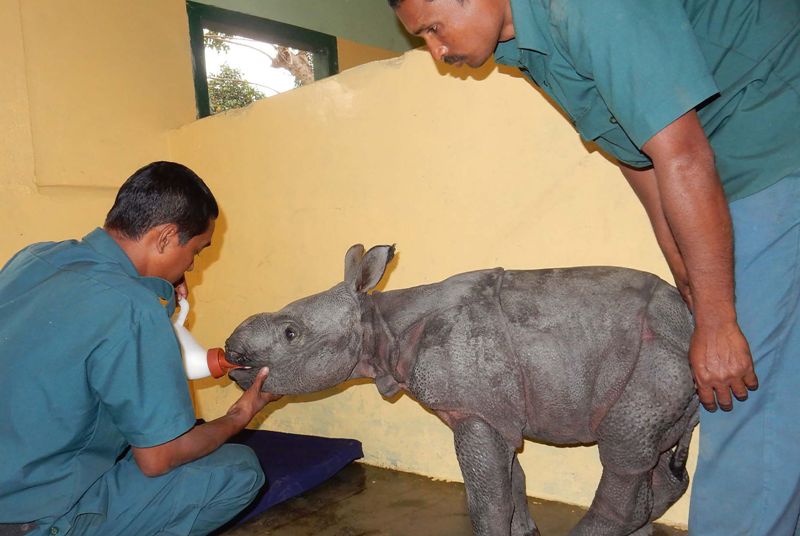
Rangers from Kaziranga National Park found the rhino calf lying in a stream and abandoned by his mother in the Bagori forest range in India's famous tea-growing state of Assam.
Dehydrated and in distress, the calf, a greater one-horned rhino, was brought to the nearby Centre for Wildlife Rehabilitation and Conservation (CWRC), which cares for orphaned or displaced wild animals.
Two lions, 110 vultures poisoned at South Africa's Kruger park
Staff have begun hand-raising the rhino, bottle-feeding him milk replacement powder and vitamin supplements and allowing him to interact with other calves to reduce stress.
"When he came he was unable to walk properly, he was very weak and suffering from hypothermia," Dr Panjit Basumatary, a veterinarian at the CWRC, told AFP.
"Now he is almost back to normal, another week or two of care and we think he should survive," he said.
The baby rhino will be released into the wild when he is about three years old, the vet said, as he will be less vulnerable to being attacked by tigers or other wild animals.
California auctioneer pleads guilty to $1 mln ivory, rhino horn smuggling
Kaziranga National Park is home to two-thirds of the world's greater one-horned rhinoceros population, according to the park's website, as well as the highest density of tigers in a protected area.
Excessive hunting has left the Indian rhinoceros, which once roamed over wide swaths of the country, now classed as vulnerable, after its habitat was reduced dramatically.
The world's fourth-largest land animal, it can weigh up to 3,000 kilos.

















COMMENTS
Comments are moderated and generally will be posted if they are on-topic and not abusive.
For more information, please see our Comments FAQ